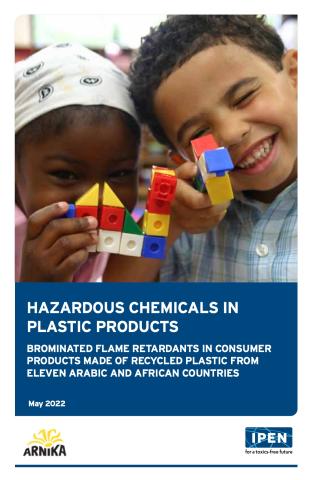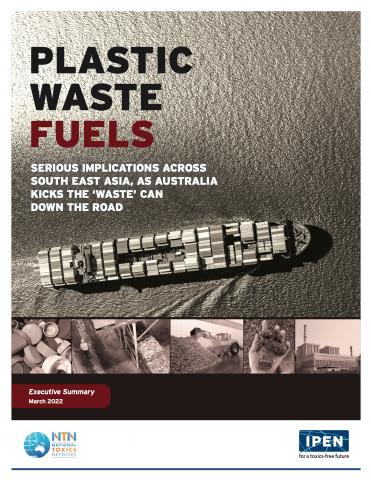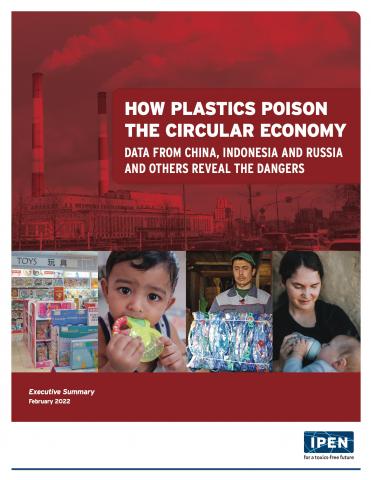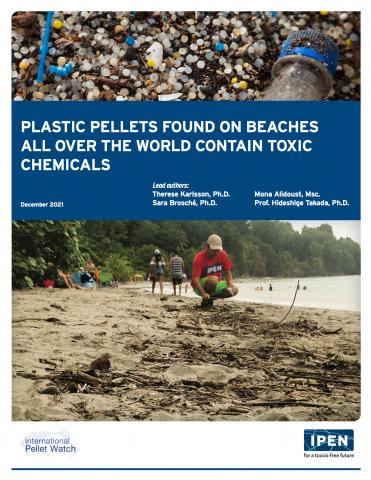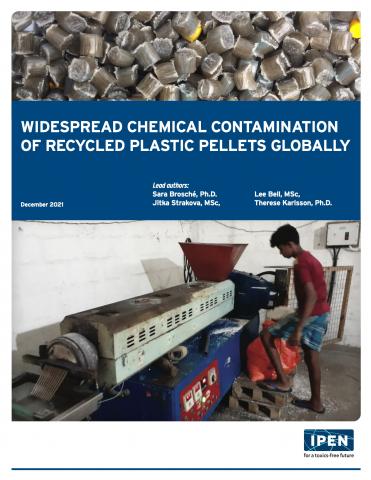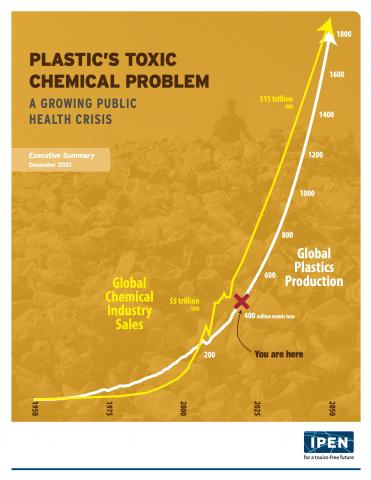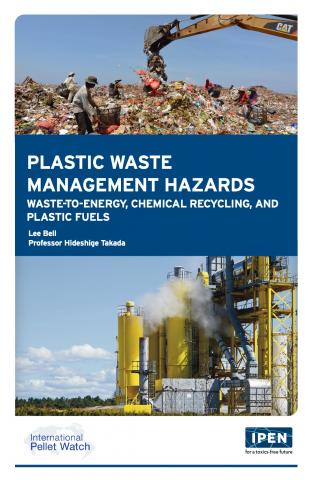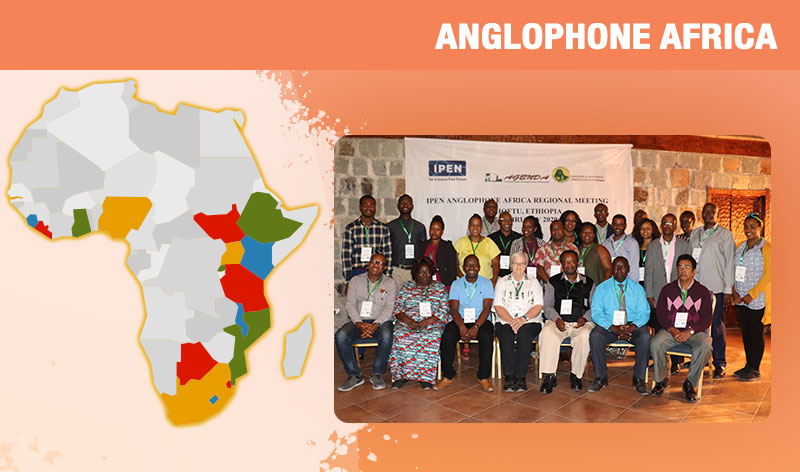
Top News

Resumed 4th Meeting of the Intersessional Process (IP4)
14 participants from 8 countries representing nine (9) IPEN participating organizations in Anglophone Africa took part at the Resumed 4th Meeting of the Intersessional Process for Considering SAICM and the Sound Management of Chemicals and Waste Beyond 2020 in Nairobi from 27 February to 3 March 2023.
The Consolidated document from IP4 will be finalized when IP4 reconvenes two days before the start of the Fifth session of the International Conference for Chemicals Management (ICCM5). ICCM5 will be held in Bonn, Germany, from 25 - 29 September 2023. Finalized Consolidated Document will be included in the Co-Chairs’ report to the ICCM5 plenary.
More News
Upcoming Events
- Plastics Treaty INC-4
21 – 30 April 2024
Location: Ottawa, Canada - Science-Policy Panel Open Ended Working Group
07 – 24 June
Location: Geneva, Switzerland - POPRC-20
23 – 27 September
Location: Rome, Italy - Plastics Treaty INC-5
25 November – 01 December
Location: Busan, Republic of Korea
Recent Reports
Kenya: The Toxic Plastic Waste Trade - a Case Study of Muoroto Slum in Mombasa, Kenya
Nigeria: Pesticides and Highly Hazardous Pesticides in Nigeria
Nigeria: Research Study on COVID-19 Impacts on Chemicals and Wastes in Nigeria
Tanzania: Tanzania National Report on Alternatives to HHPs - Second Phase
Uganda: Country Situation Report on Highly Hazardous Pesticides (HHPs)
Uganda: COVID-19 Chemicals and Waste
Newest IPEN Reports
Hazardous Chemicals in Plastic Products
Both the environment in Africa and the Arabic region and the human health of Africans and people from Arabic countries suffer from toxic chemicals and imported wastes, including illegal wastes, more than in developed countries.
This study shows that toxic chemicals are present in toys, kitchen utensils, and other consumer products purchased from African and Arabic region markets in Burkina Faso, Cameroon, Egypt, Ethiopia, Gabon, Jordan, Kenya, Morocco, Syria, Tanzania, and Tunisia.
Plastic Waste Fuels
IPEN studies show how policy is driving massive investment in plastic waste-to-fuel processing, and that exports are threatening waste management in ASEAN countries and undermining the Basel Convention and climate change commitments.
Plastic Poisons the Circular Economy
IPEN published a number of studies showing significant obstacles for countries seeking to implement safe plastic circular economies. The studies reveal that countries are unable to handle large volumes of diverse plastics waste streams safely, and the reality that, without regulations requiring plastic ingredients to be labeled, countries are blindly allowing known toxic chemicals onto their markets in plastic products.
Plastic pellets found on beaches all over the world contain toxic chemicals
Preproduction plastics as pellets, or "nurdles", can carry many different chemicals, both those added to the plastics and pollutants that attach (sorb) to them in the environment. Often lost during production, transportation, and storage, pellets have been found on beaches all over the world since the 1970s. This study of plastic pellets gathered from beaches in 23 different countries contained many chemicals of concern, some in very high concentrations.
Widespread chemical contamination of recycled plastic pellets globally
Because almost all plastics contain toxic chemicals, recycling processes can perserve and can even generate toxic chemicals, such as dioxins. In this study, pellets made from recycled HDPE, intended for use in new products, were purchased from 24 recyclers in 23 countries and analyzed for 18 substances. The large number of toxic chemicals in many of the samples highlights the need to rethink recycling to ensure it does not perpetuate harms..
Plastic’s Toxic Chemical Problem: A Growing public health crisis
This summary of our two plastic pellets reports encapsulate the broad issues related to toxic chemicals in plastics and the concerns with recycling processes that can perserve or generate toxic chemicals.
Plastic Waste Management Hazards
Plastic waste has become an unprecedented pollution issue, blanketing our planet in the petrochemical remnants of plastic production. This report examines current and emerging methods by which plastic waste is managed globally and questions whether any of them present a solution to the rapidly accelerating generation of plastic waste. In short, they don't and the only long-term answer is to produce less plastic.
Regional Hub
Agenda for Environment and Responsible Development (AGENDA)
Based in the United Republic of Tanzania
Regional Coordinator: Silvani Mng'anya
Contact: aahub@ipen.org
AGENDA’s mission is to promote a culture of responsibility to the environment amongst the general public through awareness, advocacy, capacity building and stakeholders’ involvement in Tanzania and beyond. Focus areas are sound management of chemicals and wastes; sustainable natural resource management; climate change impacts mitigation and adaptation; applied research, training and advisory services; and institutional capacity building. It consults with key stakeholders to influence policy and practices (government, institutions, agencies, industries, NGOs, individual activists, media, local communities); and collaborates and networks with national, regional and international stakeholders and networks.
Get our Newsletter
Video Highlight




